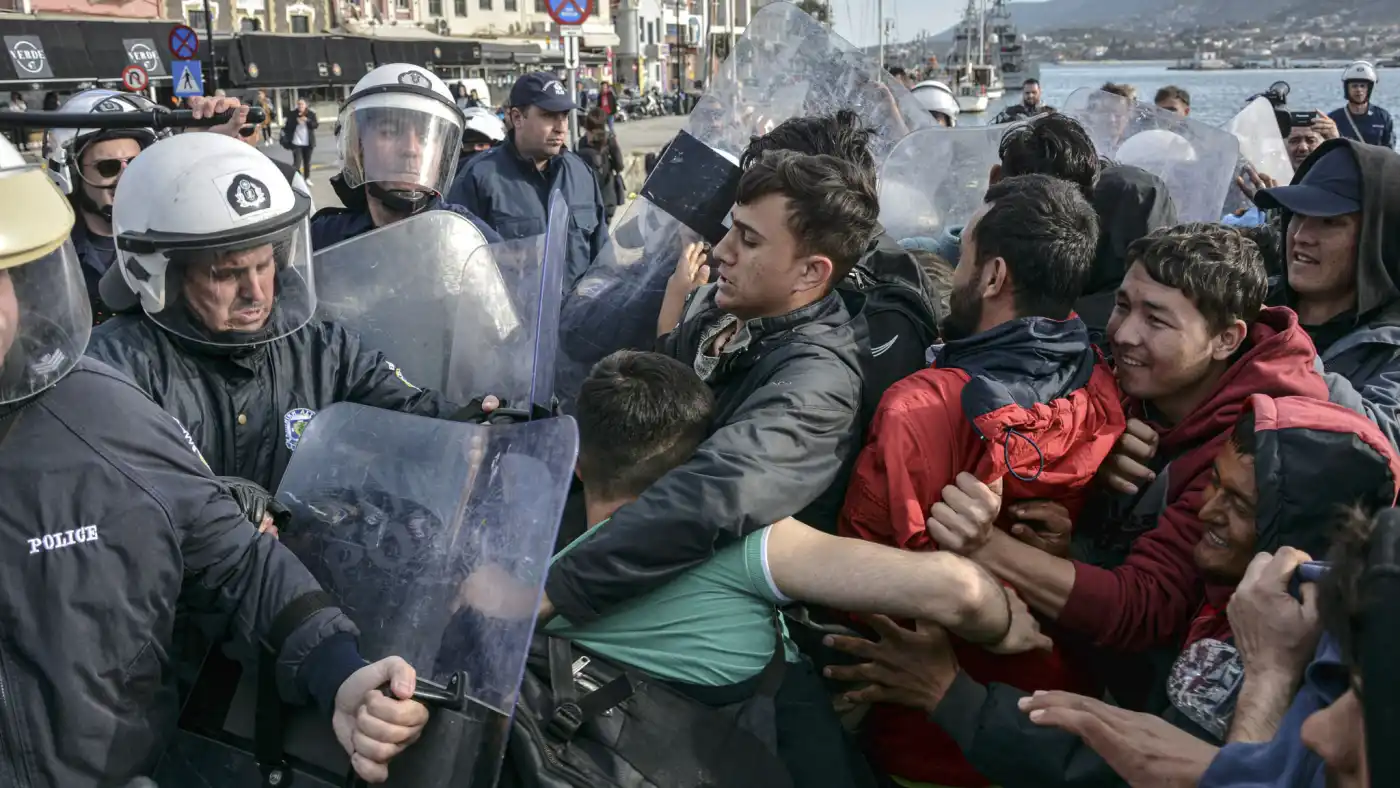Asylum Process: Is Greece a real open door
to the European Union?

Every day communications from various NGOs show that boats from different corners of the planet are arriving in Greek waters, full of people who have been forced to leave their country of origin for a variety of reasons and who are looking for a safe place to rebuild their lives in safety.
During the last decade, Greece has received immigration pressure as forced migrants arrive from Asia and Africa, reaching Greece’s false haven via Turkey. But after crossing the Greek-Turkish corridor, do they find a safe place? If it is true that many people, in the first instance, think about staying in Greek lands, all the bureaucracies of the asylum process, lack of support from the government and public entities change their perspective.
The Greek asylum system has been non-functioning, leaving thousands of people trapped in Greece, without documents or assistance. Even though the European legislation and notably the Dublin II regulation foresees that asylum applications should be processed in the first country of arrival, in this case Greece, in the last two years several EU member states have stopped sending back asylum seekers to Greece, based on the decision of the European Court of Human Rights on M.S.S. vs Belgium & Greece.
Political choices
The non-governance of asylum and irregular migration and the economic crisis provoked a true humanitarian crisis in central cities. The Greek government is trying to implement increasingly restrictive policies to try, from their perspective, to control this influx of migrations.
Supported by the UE, Greece has initiated a new project in its lands: to close some camps and rebuild new ones, where high-technology is used to enhance surveillance, serve as a panopticon and with the aim of functioning as closed camps (where a curfew is established and people must ask for permission to go out), as we see in the case of Moria 2. In this way, they intend to control the flow of movement of people, violating their rights more and more. How can we control it by building real prisons and by taking away the right of movement, freedom or even the freedom of expression to its fullest extent?
Greek refugee law
The previous legal framework on asylum and reception that had been established by Law 4375/2016 (Asylum Act) was replaced by the International Protection Act (IPA) of November 2019. This new legislation introduced a more restrictive policy on migration and asylum, with a view to reduce the number of arrivals, increase the number of returns to Turkey and strengthen border control measures. The IPA was amended by Law 4686/2020 in May 2020 with the aim of speeding up asylum procedures.
The Greek law provides two main types of protection: asylum protection (based on the Geneva Convention); or subsidiary protection (if the person concerned would face a real risk of suffering serious harm if returned to their country of origin but does not qualify as a refugee ).
Besides, the new Greek refugee law offers the possibility to get temporary protection, which however does not grant status or rights including the liberty of movement. In other words, this status does not guarantee the universal right to freedom of movement and residence, or even leave any country, set out in article 13 of the Declaration of Human Rights. This means that, in practice, people are stuck in Greece until they get a definitive answer, which can take years and years.
In theory, the procedure for being granted international protection is accessible. The law is not complicated. However, the directives of the ministry are the ones complicating the situation, making the process harder to navigate through and increasingly stressful for those who once dreamed of a safe Europe. In practice we have seen the Greek government – UE’s puppet – creating endless deadlines between stages in the asylum procedure, using non- appropriate language in official communications for foreign people who often cannot understand Greek, or even creating requirements so stringent as to make first refusal in the asylum procedure foreseeable.